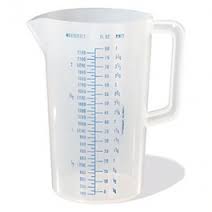记忆方法
将“litre”想象成“lit”的延伸。在心中想象一个灯(light)被延长成了一个容器,这个容器是用来装液体的,这样可以帮助你记住“litre”作为升(液体体积单位)的意思。
以上内容由AI生成, 仅供参考和借鉴
中文词源
litre 升
来自拉丁libra,平衡,秤,用于液量单位升,词源同Libra,level.
英语词源
- litre
-
litre: [19] Litre goes back to Greek lītrā, a term which denoted a Sicilian monetary unit. This found its way via medieval Latin litrā into French as litron, where it was used for a unit of capacity. By the 18th century it had rather fallen out of use, but in 1793 it was revived, in the form litre, as the name for the basic unit of capacity in the new metric system.
It is first recorded in English in 1810. The Greek word was descended from an earlier, unrecorded *līthrā, which was borrowed into Latin as lībra ‘pound’. This is the source of various modern terms for units of weight, and hence of currency, including Italian lira and the now disused French livre, and it also lies behind the English symbol £ for ‘pound’.
=> level, lira
权威例句
- 1. New Japanese cars averaged 13 km to the litre in 1981.
- 1981年,新型的日产汽车平均每升汽油能跑13千米。
- 2. In that 2.7-litre form it really was a terrific racing car.
- 其2.7升的车型确实是非常棒的赛车。
- 3. This tax would raise petrol prices by about 3.5p per litre.
- 这项税收会使每升汽油价格提高约3.5便士。
- 4. One tablet will purify a litre of water.
- 一丸即可净化一升水。
- 5. Litre is a unit of capacity in the metric system.
- 升是公制测量中的一个单位.
